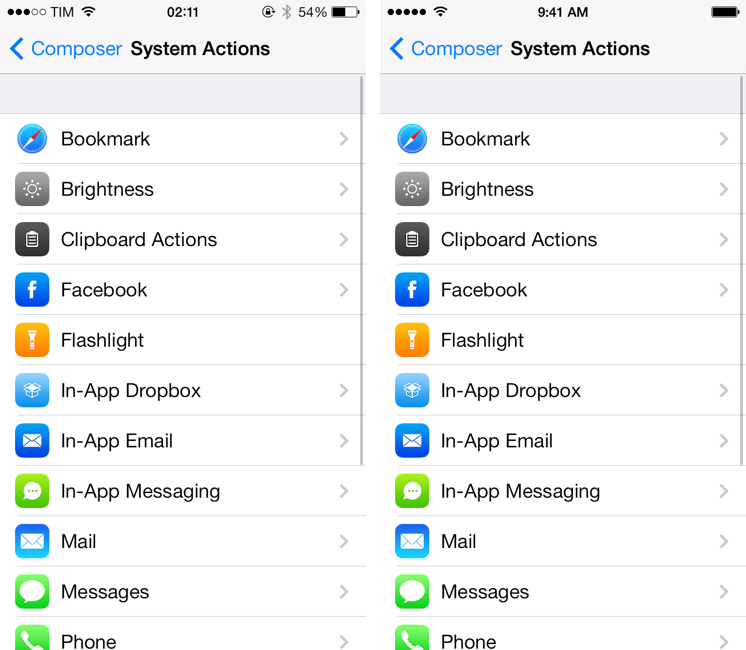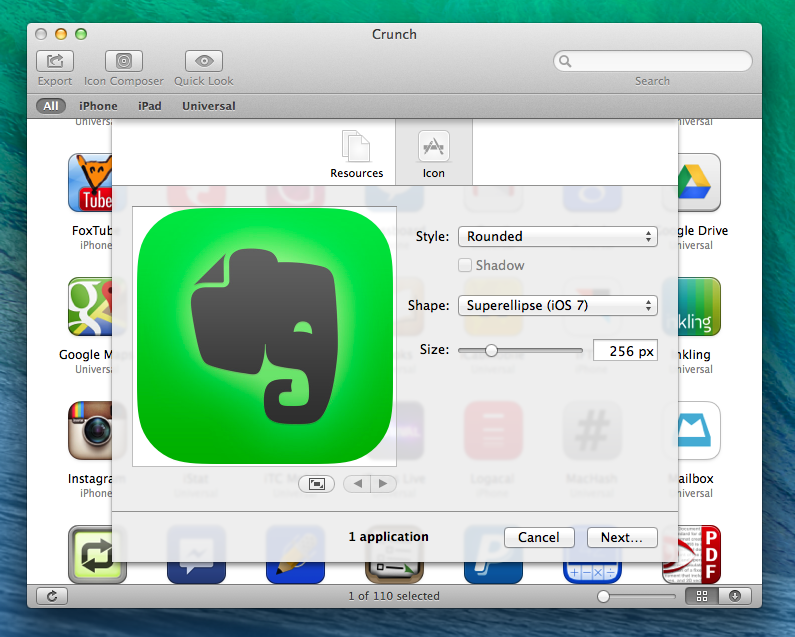In January 2012, I reviewed Crunch by Pragmatic Code, a Mac app to identify and extract icon and other resources from iOS apps:
Crunch is capable of automatically detecting apps from your iTunes library and filtering them by platform — iPhone, iPad, or Universal. Crunch will also install a QuickLook plugin, so you’ll be able to see each app’s icon overlaying the standard .ipa file preview in the Finder and QuickLook windows. Once you’ve selected an app, you can hit Export, and Crunch will ask you where you’d like to save an app’s resources, and if you’d like to keep all files with their existing folder hierarchy, or only Retina-ready @2x image files. The latter option can be particularly useful to pinpoint images ready for the rumored iPad 3′s Retina Display found inside several Apple apps for iOS.
Today, Pragmatic Code released version 1.5 of the app, which comes with support for iOS 7’s superellipse shape and a new Icon Composer tool to render icons from artwork.
Support for iOS 7’s new icon shape has been enabled in the app’s browser (where Crunch automatically recognizes apps from your iTunes library), Quick Look panel, and Icon Export menu. I don’t think that Apple has published official specifications for the new shape, but the one in Crunch looks just like the real thing to my untrained designer eye. When you hit Export in the top toolbar, you can still find and export assets from inside an app’s bundle, but if you click on Icon you’ll now see options to choose Superellipse (iOS 7), Rounded (iOS 6), or Automatic. Additionally, you can choose to export an icon’s artwork with no shape or no border by clicking on the Style dropdown menu.
The new Icon Composer can be used to drop artwork into Crunch and export it with Apple’s icon shapes. There is a preview panel on the left, and a slider to tweak the size of the icon.
While extracting application assets could be done with built-in tools on a Mac, Crunch is a great utility that simplifies the process and lets you save time. Support for iOS 7 is welcome and handy if you want to take a look at how other developers are managing resources inside their apps – or, with the Icon Composer, if you just want to preview how artwork will look under the new OS. Crunch is $9, and a 15-day free trial is available.



